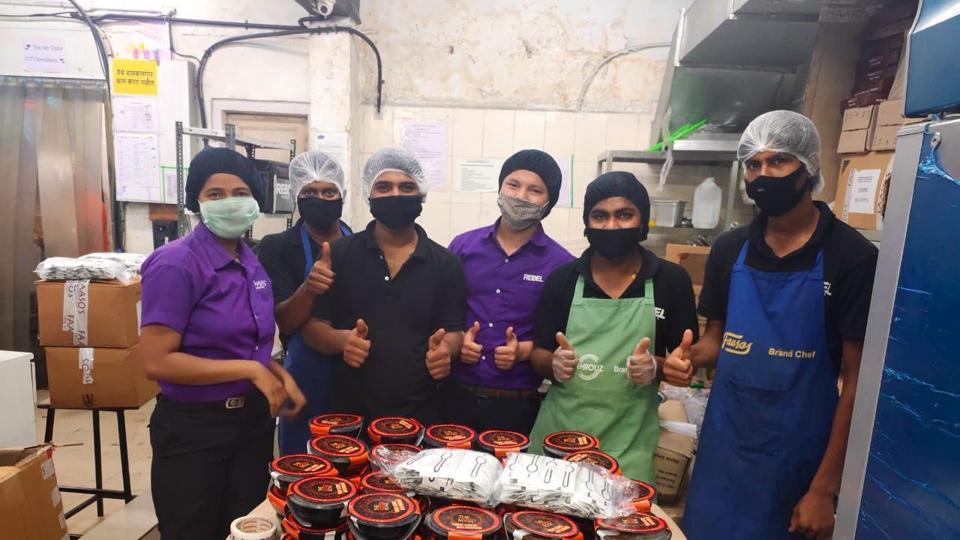prasad1
Active member
Debojit Thakur was already part of a transcontinental network when the pandemic hit. A student from Kolkata with years of experience in volunteer relief work, he was pursuing a PhD at the University of Trier in Germany, and was in the middle of a research trip to Delhi when the borders closed in March.
Still, when he and a few friends decided to post a message on Facebook on March 29, inviting donations to help feed those rendered jobless and homeless, they were not expecting the response they got.
“People from the United States, United Kingdom, Germany and across Europe, most of them students, sent in money,” said Thakur, 29. “And those who couldn’t spare money were generous with their time, their help, and with spreading the word.”
Within weeks, a network of 650 volunteers had emerged, spread across Delhi and West Bengal. Thakur decided to call it the Quarantined Student-Youth Network (QSYN). They set up 26 makeshift kitchens and have so far distributed over 10,000 ration packages and served over 100,000 cooked meals.
Bollywood got wind of the bunch of youngsters doing good work, and celebrities like Ayushmann Khurrana, Varun Grover, Ishan Khattar and Ananya Pandey shared their details on Instagram Stories, inviting people to pitch in. By May 27, the group had collected Rs 60 lakh. By June 14, it had jumped to Rs 95 lakh, and QSYN had begun using the crowd-funding website Ketto.org, for greater ease and transparency.
“My friends and I used to volunteer under the banner Students of Bengal. We contributed to relief work after the Nepal earthquake in 2015 and the floods in Kerala last year. In the lockdown, with the millions being affected, I realised we had to build a stronger network. That’s how QSYN was born,” said Thakur.
“We plan to keep it going till all the money is gone. We are not an NGO but we will have to decide what to do in the future, because this is a good thing we’ve started. Maybe we can figure that out when we actually can meet in person.”

 www.hindustantimes.com
www.hindustantimes.com
Still, when he and a few friends decided to post a message on Facebook on March 29, inviting donations to help feed those rendered jobless and homeless, they were not expecting the response they got.
“People from the United States, United Kingdom, Germany and across Europe, most of them students, sent in money,” said Thakur, 29. “And those who couldn’t spare money were generous with their time, their help, and with spreading the word.”
Within weeks, a network of 650 volunteers had emerged, spread across Delhi and West Bengal. Thakur decided to call it the Quarantined Student-Youth Network (QSYN). They set up 26 makeshift kitchens and have so far distributed over 10,000 ration packages and served over 100,000 cooked meals.
Bollywood got wind of the bunch of youngsters doing good work, and celebrities like Ayushmann Khurrana, Varun Grover, Ishan Khattar and Ananya Pandey shared their details on Instagram Stories, inviting people to pitch in. By May 27, the group had collected Rs 60 lakh. By June 14, it had jumped to Rs 95 lakh, and QSYN had begun using the crowd-funding website Ketto.org, for greater ease and transparency.
“My friends and I used to volunteer under the banner Students of Bengal. We contributed to relief work after the Nepal earthquake in 2015 and the floods in Kerala last year. In the lockdown, with the millions being affected, I realised we had to build a stronger network. That’s how QSYN was born,” said Thakur.
“We plan to keep it going till all the money is gone. We are not an NGO but we will have to decide what to do in the future, because this is a good thing we’ve started. Maybe we can figure that out when we actually can meet in person.”

HT Salutes: A student-led network of volunteers solves crises
Within weeks, a network of 650 volunteers had emerged, spread across Delhi and West Bengal. Thakur decided to call it the Quarantined Student-Youth Network (QSYN).

